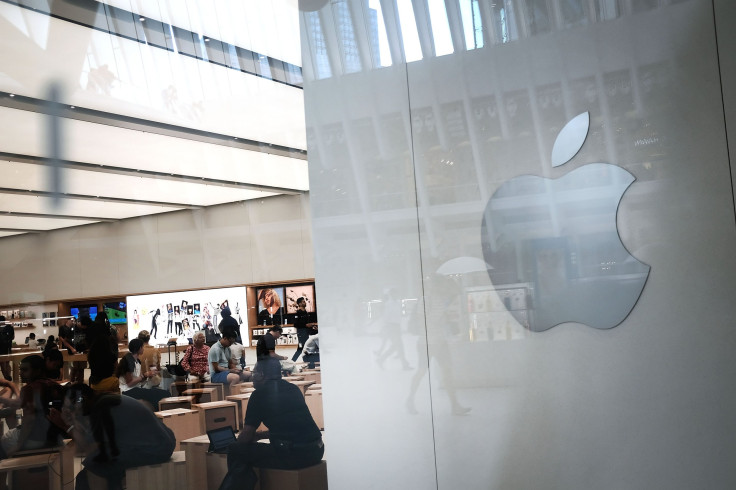What Apple's Supreme Court Loss Means For Investors

The U.S. Supreme Court ruled against Apple (NASDAQ:AAPL) on Monday, clearing the way for iPhone users to bring an antitrust suit against the device maker for its App Store practices.
Consumers contended that Apple's 30% commission on App Store sales unfairly forces them to pay higher prices and suggested that if other app distribution platforms existed for iPhone, app prices could be lower. Apple's argument was that it sells distribution services to developers, so only developers should be able to bring a suit against the company. The Court ruled that users transact directly with Apple when they buy something in the App Store, which means users can sue Apple for unfair pricing.
Here's what investors need to know about the Supreme Court ruling and how it might impact Apple.
What the court did and did not determine
First and foremost, it's important to understand that the court didn't find Apple liable for any damages from exercising unfair monopoly power. It didn't even determine Apple had used its power unfairly. The only thing it established was that the company could be sued by iPhone users.
An antitrust case from iPhone users would take years to organize and take to trial. For now, Apple will likely see minimal financial impact.
The court also didn't rule out the potential for developers to bring a case against App Store policies. Some developers have been outspoken about Apple's anti-competitive pricing policies, particularly those competing with Apple's other services in music and video.
Netflix (NASDAQ:NFLX) and Spotify (NYSE:SPOT) come to mind as companies that have rejected billing consumers through the App Store. The latter even sued Apple in Europe. But smaller companies aren't in a position to eschew Apple's distribution platform. They rely on the App Store for billing and distribution to iPhone users.
While Apple won't see a significant impact right now, it could have to pay damages to both developers and users if cases were to be successfully prosecuted.
The potential damages
Antitrust laws allow plaintiffs to recover treble damages, or three times the amount of actual damage incurred by the monopoly pricing power. That could be a significant amount, even for Apple and its hundreds of billions in cash.
Since opening the App Store in 2008, Apple has paid out $120 billion to developers. If Apple took its standard 30% commission on each of those sales, it's earned over $50 billion in revenue.
Granted, Apple should be allowed to take some commission, so not all $50 billion could be considered damages. That said, App Store sales have been so strong over the last decade that any ruling that Apple's commission results in unfair pricing for consumers would result in a multibillion-dollar fine for Apple.
Fool contributor Craig LaChance believes Apple is unlikely to see an antitrust case go to trial. If anything, the company might settle out of court with the plaintiffs. "It is extraordinarily difficult to prove antitrust liability, and Apple could settle for significantly less," he wrote last week.
The case for developers is even more difficult to determine. Developers would have to show Apple's 30% commission resulted in App Store pricing that led to fewer sales. That's practically incalculable because few developers can show a demand schedule for their apps based on pricing. Importantly, developers may not have much of a case at all because Apple's monopoly over app distribution on iOS dramatically cuts down on piracy compared to Alphabet's more open Android OS.
What it means going forward
Apple likely won't see any direct impact on its business right now. And a negative ruling for Apple in an antitrust case or a settlement just means a one-time payment.
But Apple's services segment, in particular, could face a significant challenge going forward if negative consequences from an antitrust case were to occur. Services is Apple's second-largest reporting segment after iPhone, with revenue nearly twice as much as Mac, iPad, or wearables, home, and accessories sales. It's also growing quickly and produces a gross margin that's very high compared to Apple's hardware sales.
App Store revenue is a significant portion of Apple's services revenue. The company paid out about $34 billion to developers in 2018, keeping an estimated $11 billion for itself based on a 25% average commission rate. During the same period, Apple generated about $39.6 billion in total services revenue.
If Apple were forced to lower its commission on App Store sales as a result of eventual lawsuits, it would negatively impact both its revenue and gross margin growth for its services segment. Considering the importance of the segment to continued profit growth in light of stagnating iPhone sales, any slowdown could be a major blow for shareholders. That said, Apple is actively working to diversify away from App Store sales in its services business, and it's even looking to cannibalize the App Store itself.
The Supreme Court ruling is certainly bad news for Apple, but investors don't need to be overly concerned. The decision merely opens the door for antitrust litigation from iPhone users. The charges are difficult to prove and could take years to bring to trial, if it ever gets there. Still, it's important to understand the potential damage Apple could face as part of a negative ruling or settlement and how it could impact the company.
This article originally appeared in the Motley Fool.
Suzanne Frey, an executive at Alphabet, is a member of The Motley Fool’s board of directors. Adam Levy owns shares of Alphabet (C shares) and Apple. The Motley Fool owns shares of and recommends Alphabet (A shares), Alphabet (C shares), Apple, and Netflix. The Motley Fool has the following options: long January 2020 $150 calls on Apple and short January 2020 $155 calls on Apple. The Motley Fool has a disclosure policy.





















